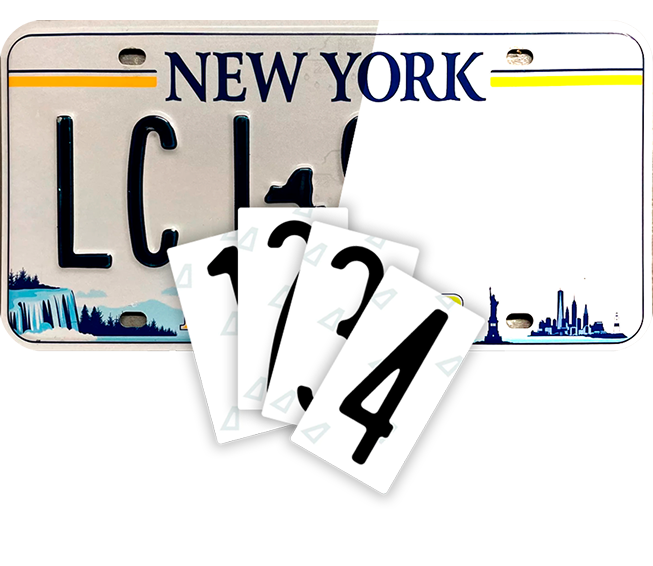The modern road is a battleground of convenience and surveillance. Speed traps, toll readers, parking monitors, and ALPR cameras have made anonymity nearly impossible. But for drivers who value privacy - and want to remain within legal bounds - there are still tools to reduce exposure without tampering with the law.
Here are five legal, tech-powered ways to stay out of the digital spotlight while behind the wheel.

Folding frame Alite Flipper
Stealth in a click
test
Learn moreLicense Plate Covers for Cameras - What They Actually Block
Not all license plate covers for cameras are created equal. While some are gimmicky or outright illegal, there are designs built specifically for privacy - not evasion. These transparent covers use reflective or polarized materials to distort how light hits your plate when seen from certain angles.
In practice, this means ALPR systems may struggle to get a clean read if the light bounces irregularly off the plate. It’s not about making the plate invisible - it’s about increasing the margin for error in recognition. Combined with smart placement and compliance with plate visibility laws, these covers can provide a passive layer of protection against unwanted scans.

Nanofilm Ecoslick Material
Anti-radar material
test
Learn moreReflective Number Plate Film - Subtle, Always-On Privacy
A popular and stealthy solution, reflective number plate film creates selective interference with camera flashes and IR scans. These ultra-thin films are layered directly on top of your license plate - but don’t change how the plate appears to the human eye.
What makes them work is their angle-based reflectivity. When a camera with a flash or IR beam captures an image, the film bends or scatters light, reducing the sharpness of captured characters. This affects the effectiveness of OCR (optical character recognition), making it harder to extract readable data.
For those wondering how to avoid speed camera tickets without doing anything sketchy, this kind of passive technology offers legal breathing room - especially in urban areas packed with enforcement sensors.
Reflective films are also weatherproof and compatible with nearly every plate format worldwide, adding a layer of physical durability alongside digital protection. They’re discreet, easy to apply, and don’t interfere with law enforcement readability in person - making them a top choice for privacy-minded drivers who want reliable, long-term defense.
Nanofilm Ecoslick License Plate Hider Sticker - Stealth Meets Science
One of the most advanced tools in privacy tech is Alite's Nanofilm Ecoslick, a license plate hider sticker that uses cutting-edge nanomaterials to disrupt optical character recognition without altering your plate's visible design. Unlike standard films, Ecoslick works by mimicking plate digits while partially absorbing infrared light, confusing ALPR sensors without drawing attention.
Ecoslick is especially powerful at night or during flash-heavy scanning. It skews contrast and structure just enough to interfere with camera readings while staying visually compliant. The result? A stealthy yet legal reduction in scannability - with no buttons, no electronics, and no trace left behind.
It’s cut to match your plate, resistant to weather and wear, and fully removable if needed. For those seeking a subtle, always-on blocker, Ecoslick delivers both technology and compliance.

Nanofilm Ecoslick
Anti-radar stickers
test
Learn moreGhost Plates and Alternate Blocking Tech - Beyond the Basics
Beyond reflective films and nanotech, another solution gaining traction is the ghost plate - a layered approach using multiple distortive elements to interfere with multiple types of scans.
These systems combine texture-altering films, prismatic overlays, and light-diffusion coatings to disrupt both standard and infrared imaging. Some even integrate polarizing filters to confuse angle-based camera systems.
While more experimental than traditional films, these alternatives are pushing the envelope of passive protection. The key to legality lies in ensuring that the plate remains clearly readable to the human eye under normal lighting and viewing conditions.
In some countries, ghost plate-style solutions exist in a legal gray zone. Always check local legislation before applying unfamiliar materials.

Alite Nanotapes
Click and Stick
test
Learn moreSmarter Driving and Legal Awareness - Real-World Behavior Matters
Even the best anti flash number plates or license plate hider stickers can’t protect you if you don’t drive smart. Awareness of your environment - and how cameras operate - is your first line of defense.
- Learn where fixed ALPR and mobile enforcement units are in your area.
- Favor routes with lower surveillance or analog tolls.
- Park in private lots or covered garages when possible.
Pairing tech tools with smarter driving creates layers of protection. Disable Bluetooth tracking in your vehicle when not needed, and don’t underestimate the value of timing: many cities use peak-hour camera enforcement, leaving off-hours more relaxed.
Using your tools correctly - and legally - turns privacy from paranoia into practice.

Alite Blackout
Stealth in a сlick
test
Learn moreYou don’t have to go full stealth mode to stay protected. In a world where every movement is tracked, tools like license plate hider stickers, reflective number plate film, and experimental ghost plates give everyday drivers a say in their exposure.
When used within legal limits - and combined with smart driving - these tools offer peace of mind without risk. It’s not about hiding. It’s about choosing what parts of your data get shared.
Check Out: What Police Plate Readers Really See — And How to Limit Your Exposure




















